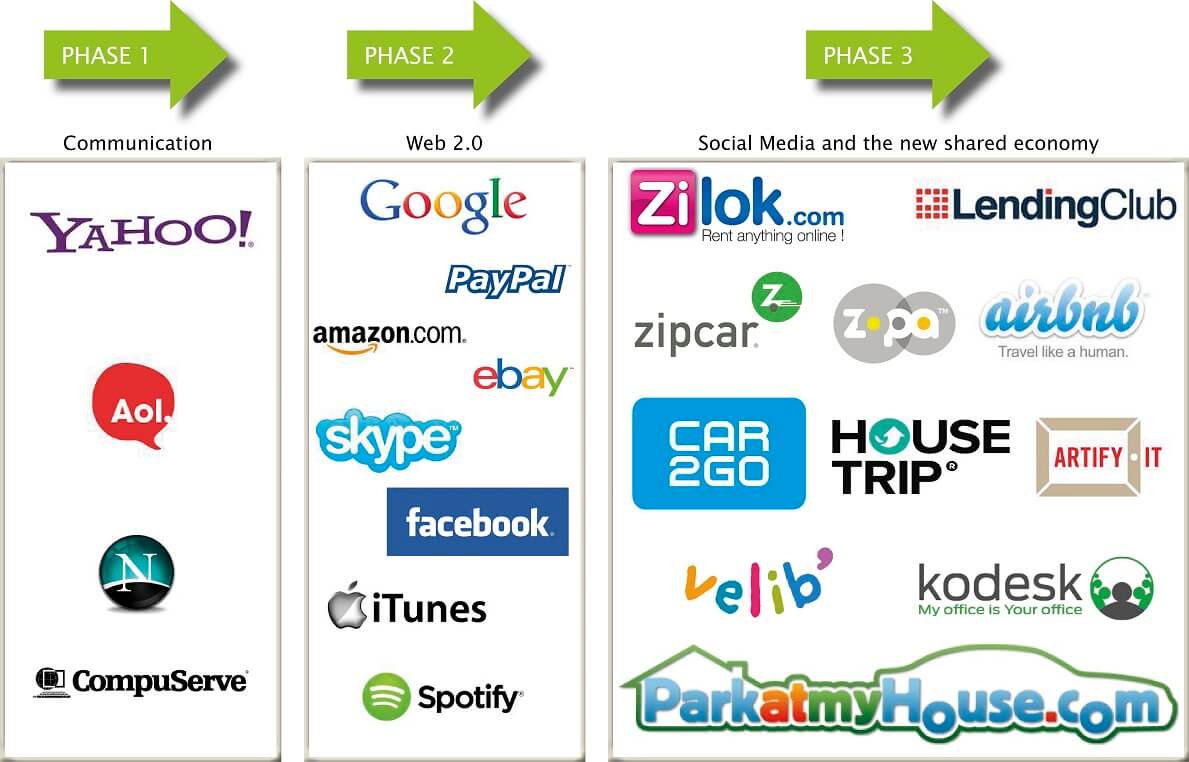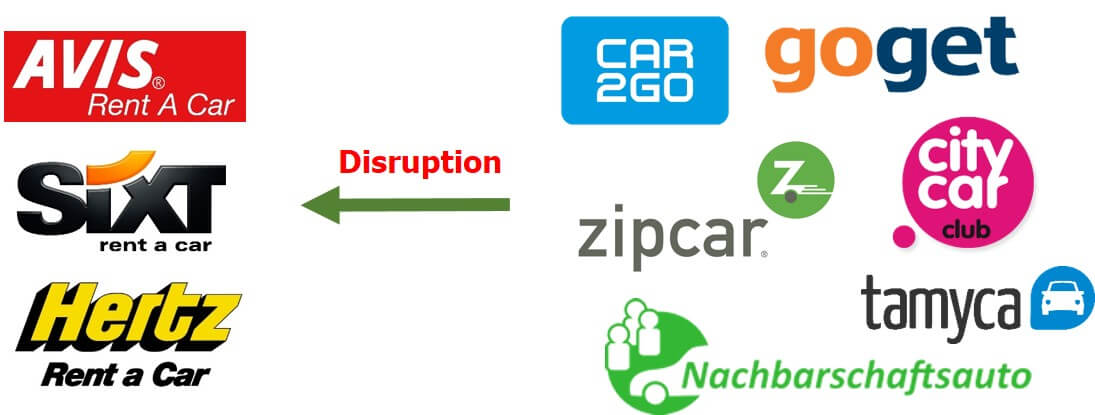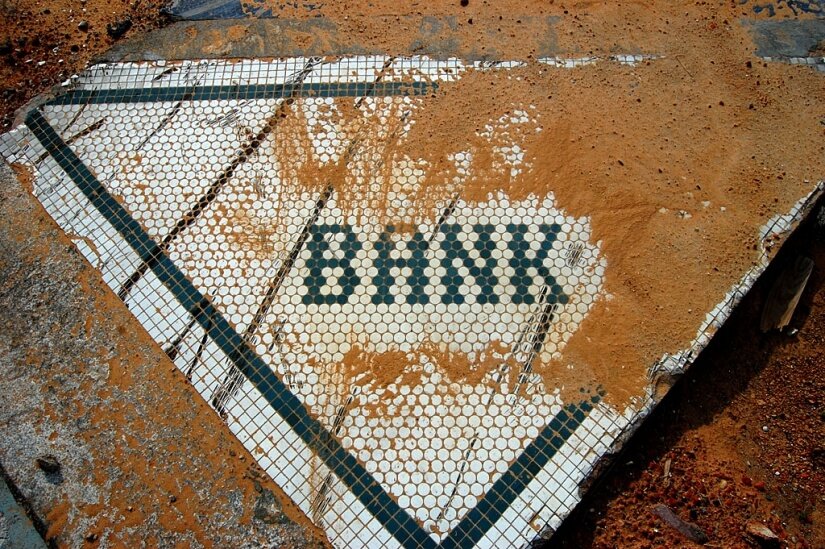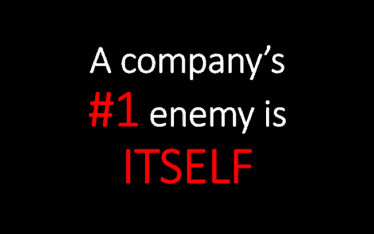The terms “collaborative consumption” (shared economy) – where physical goods are shared among a group of people, rather than individually owned – might seem more reminiscent of flower power than of Gordon Gekko, but the business threats they embody are very real.
The phases of the internet evolution – from communication to social media and the new shared economy:
For companies in a growing number of industries, it’s no longer sufficient if you leverage digital technologies to rationalize and optimize your internal production.
If your business relies on a model of consumption that is inefficient for your consumers, chances are that there’s already a new sharing economy marketplace that is looking to streamline it for them.
Car rental disruption
Rental agencies ask consumers to travel long distances to a centralized hub, stand in line, fill out paperwork, pay only by the day or week, and shell out for insurance, gas, and often mileage charges. They give you the keys to whatever generic car happens to be available that day.
Zipcar, meanwhile, makes it easy to make an online reservation for a specific car parked in your neighborhood.
Zipcar, founded in 2000, is one of the pioneers of the sharing economy. Creating a sense of community of mutual respect and respect for others is critical to this type of business. Zipcar has spent a lot of time fine-tuning the parameters that foster its community, such as how it encourages people to keep cars clean and how fees are imposed for returning a car late. The company encourages its members (known as Zipsters) to have a spirit of banding together to make the world a better place.
Conventional rental car experience is worlds apart
Compared to Zipcar, the conventional rental car experience is worlds apart. You feel no communal connection to your fellow renters, and you are renting because you have no choice, rather than because you really want to. Unlike Zipcar, conventional car rental are largely interchangeable commodities for most customers.
Community is one of the most important parts of Zipcar’s success, but it will also be the easiest to misunderstand and mismanage – often gets ignored by companies that lack it in their DNA. These days every company wants to have a Facebook page and connect with customers on Twitter or Pinterest, but in reality, most companies are still at early stages of understanding how to build a community.
Furthermore, a strong community is a two-edged sword that can quickly turn. The recent controversies over Instagram (first its acquisition by Facebook, then the controversy over terms of service) show how engaged user communities can marshal against a company if they feel wronged.
Will the Zipcar culture survive the merger with Avis Budget? Can they keep the community alive?
Short URL & title:
Collaborative consumption is not a new flower power movement — http://www.torbenrick.eu/t/r/nlu
Share it:
If you enjoyed this article, please take 5 seconds to share it on your social network. Thanks!










About The Author
Torben Rick
Experienced senior executive, both at a strategic and operational level, with strong track record in developing, driving and managing business improvement, development and change management. International experience from management positions in Denmark, Germany, Switzerland and United Kingdom